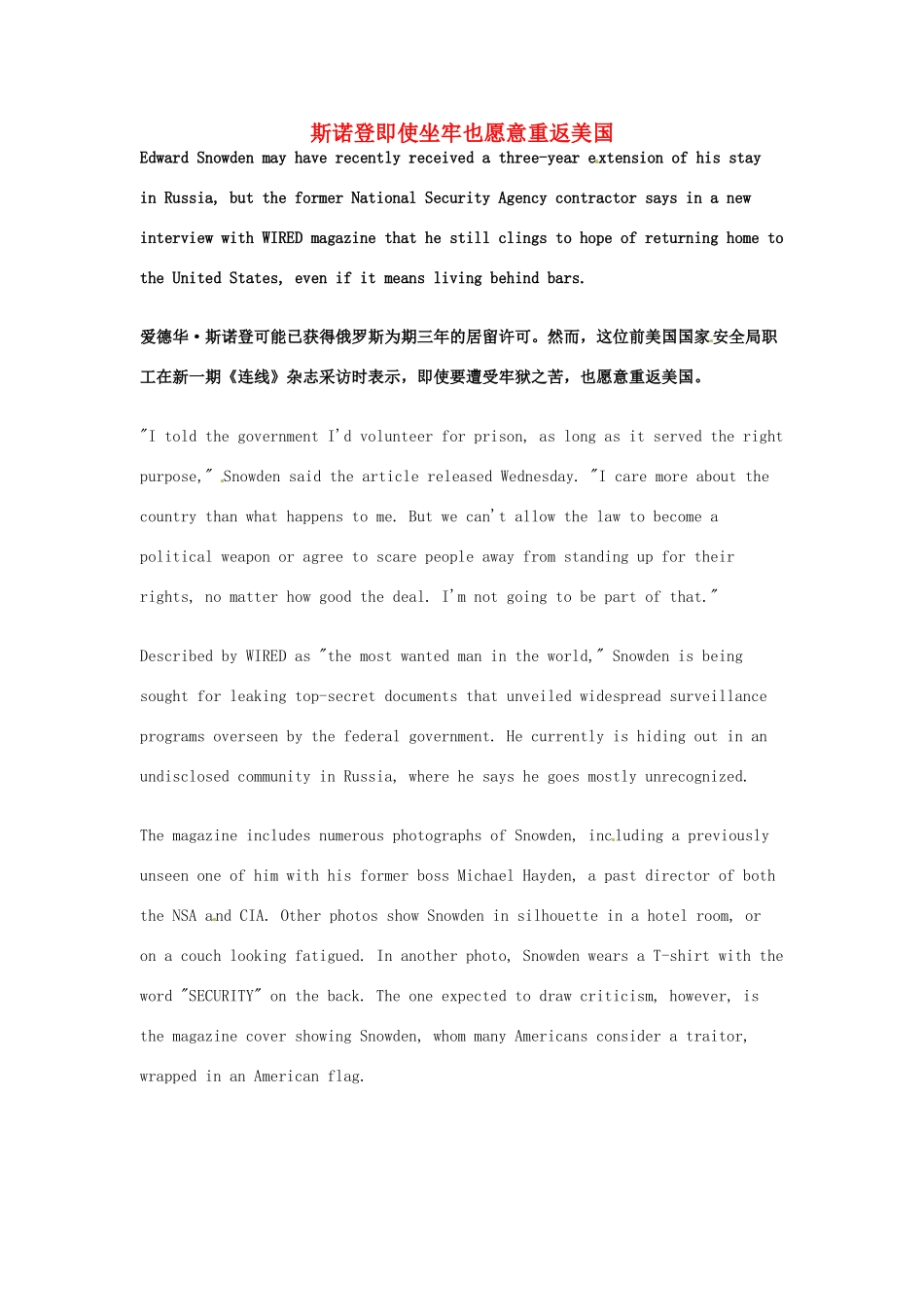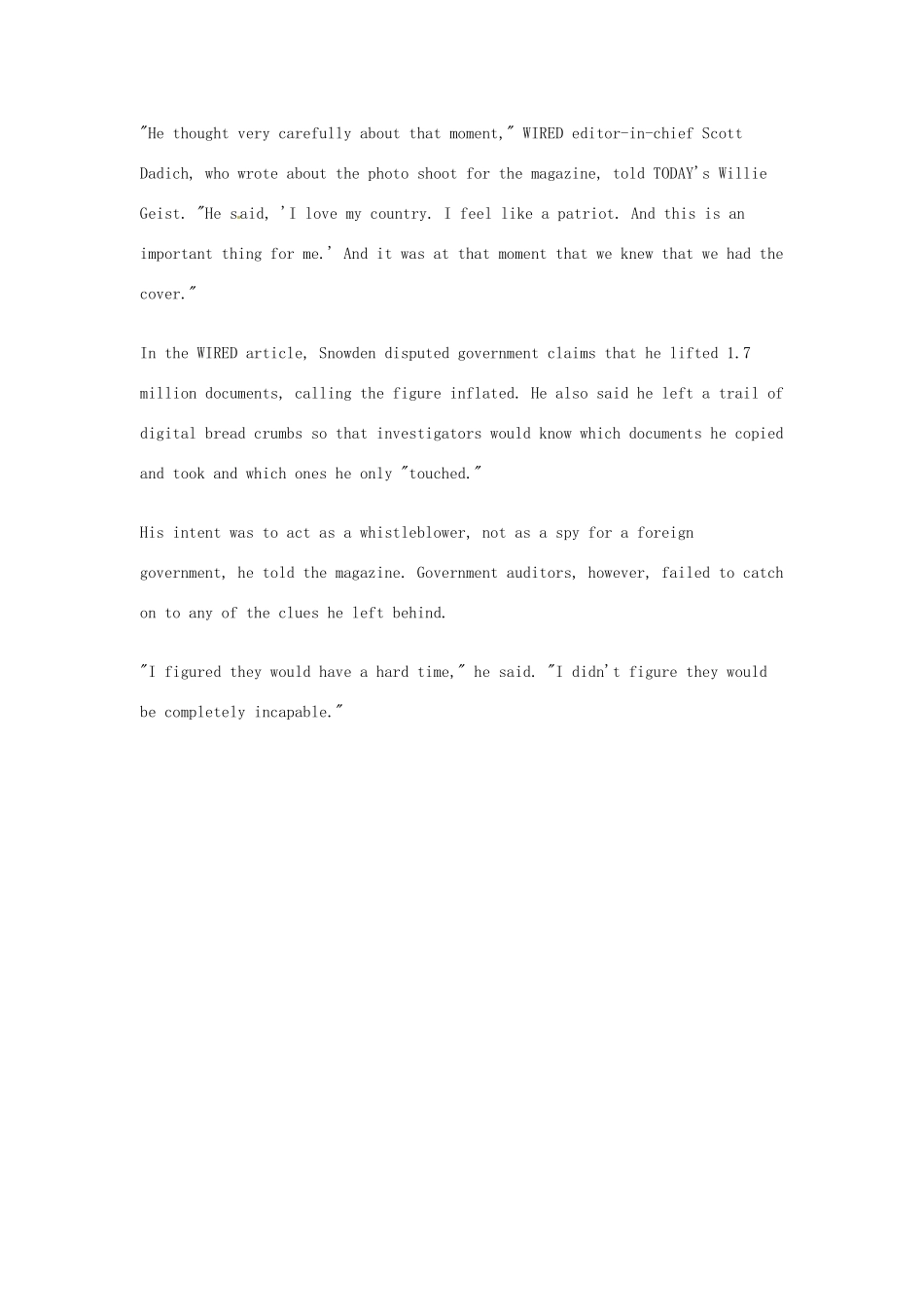斯诺登即使坐牢也愿意重返美国Edward Snowden may have recently received a three-year extension of his stay in Russia, but the former National Security Agency contractor says in a new interview with WIRED magazine that he still clings to hope of returning home to the United States, even if it means living behind bars.爱德华·斯诺登可能已获得俄罗斯为期三年的居留许可。然而,这位前美国国家安全局职工在新一期《连线》杂志采访时表示,即使要遭受牢狱之苦,也愿意重返美国。 "I told the government I'd volunteer for prison, as long as it served the right purpose," Snowden said the article released Wednesday. "I care more about the country than what happens to me. But we can't allow the law to become a political weapon or agree to scare people away from standing up for their rights, no matter how good the deal. I'm not going to be part of that." Described by WIRED as "the most wanted man in the world," Snowden is being sought for leaking top-secret documents that unveiled widespread surveillance programs overseen by the federal government. He currently is hiding out in an undisclosed community in Russia, where he says he goes mostly unrecognized. The magazine includes numerous photographs of Snowden, including a previously unseen one of him with his former boss Michael Hayden, a past director of both the NSA and CIA. Other photos show Snowden in silhouette in a hotel room, or on a couch looking fatigued. In another photo, Snowden wears a T-shirt with the word "SECURITY" on the back. The one expected to draw criticism, however, is the magazine cover showing Snowden, whom many Americans consider a traitor, wrapped in an American flag. "He thought very carefully about that moment," WIRED editor-in-chief Scott Dadich, who wrote about the photo shoot for the magazine, told TODAY's Willie Geist. "He said, 'I love my country. I feel like a patriot. And this is an important thing for me.' And it was at that moment that we knew that we had the cover." In the WIRED article, Snowden disputed government claims that he lifted 1.7 million documents, calling the figure inflated. He also said he left a trail of digital bread crumbs so that investigators would know which documents he copied and took and which ones he only "touched." His intent was to act as a whistleblower, not as a spy for a foreign government, he told the magazine. Government auditors, however, failed to catch on to any of the clues he left behind. "I figured they would have a hard time," he said. "I didn't figure they would be completely incapable."

